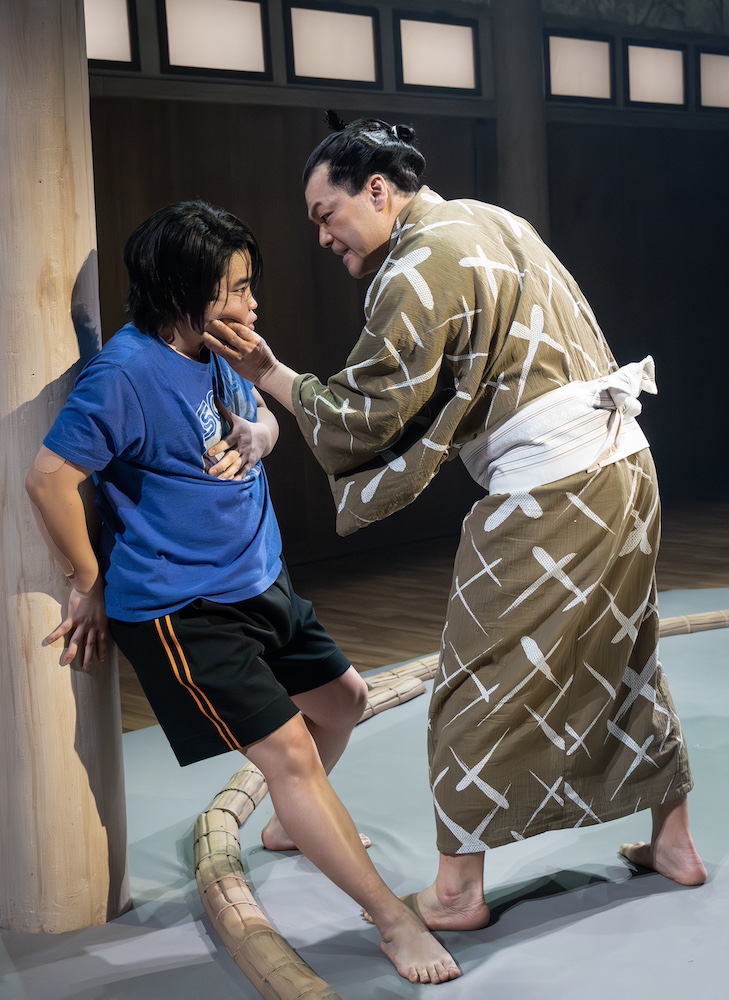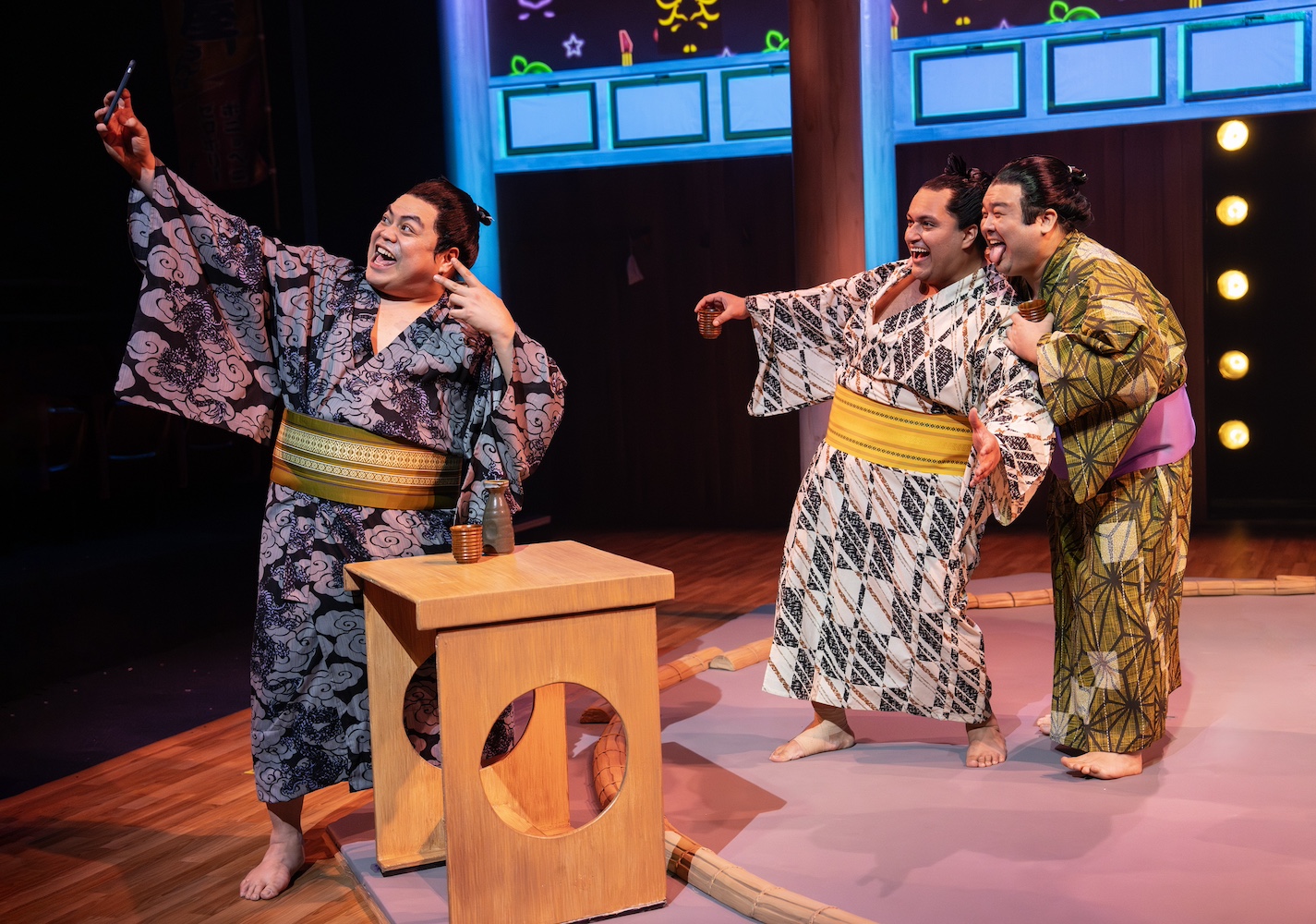3.5/5 stars
“You’re a bulldozer who doesn’t know he’s a ballerina,” a character in Lisa Sanaye Dring’s SUMO, now playing at the Public Theater, tells an ambitious, up-and-coming rikishi (sumo wrestler). The phrase neatly encapsulates the play’s main concern: the eternally relevant question of what it means to be a man. “Women are forbidden,” say several characters in unison, and the rikishi all work to police the borders of masculinity, casting out anything that smacks of femininity, coded as weakness. The parameters of this world are set by physical domination, but the characters find ways to incorporate flexibility and grace into strength–or they don’t. This tension (neatly orchestrated by director Ralph B. Peña), along with the push-and-pull between the earthbound physicality of sumo and its origins as a spiritual practice, infuses and guides the play’s action and revelations.

The main plot of SUMO follows familiar beats: a starry-eyed young man, Akio (Scott Keiji Takeda), starts to grow into his talent, and finds he must choose between two would-be mentors, Mitsuo (David Shih) and Ren (Ahmad Kamal), with starkly different life philosophies. Mitsuo inflicts a form of hazing on Akio that ranges from public berating to physical abuse, while Ren shares his expertise and wisdom with the newbie. This somewhat well-trodden plot is saved from cliché by the rest of the characters in the training stable: Fumio (Red Concepción) is torn between what he sees as his role in society and fantasies of what could be; So (Michael Hisamoto) struggles to come to terms with his all-consuming love for the sport; and Shinta (Earl T. Kim), more in tune with the spiritual aspect of sumo, must expand his horizons. A trio of Shinto priests comment on the action and provide context that grounds sumo in a specific history and culture.
Scott Keiji Takeda, as Akio, capably draws us down the road from greenhorn to adept, capturing his youthful hubris and his final revelation. Ahmad Kamal, as Ren, is another standout, conveying gravitas, hopeful romanticism, and the quiet confidence of the ultra-competent.
The costuming (Mariko Ohigashi) underscores the hidden vulnerability that these physically powerful men carry within. The rikishi spend most of their time onstage in the traditional mawashi; not only are their bodies exposed, but they bear the marks that the demands of their sport have left: athletic tape and compression bandages testify to injuries and weakness. One character is scolded for wearing casual streetwear outside, reminded that rikishi must wear traditional clothing to set themselves apart from common commuters. Every moment in public thus becomes a role in which one must wear the expected costume.

A taiko drummer (Shih Wei-Wu) at the top of the stage sets the scene and punctuates the action, bringing an intense immediacy to the conflicts playing out below. Those clashes all happen within an immovable sumo ring at center stage, containing most of the action within its bounds (including baths and nights out) and circumscribing the rikishi within its intense, rigid, occasionally transcendent world. Some of these men would live their whole lives within that circle if they could. The fight choreography (James Yaegashi and Chelsea Pace) deserves special mention: even with the limited time given to the sumo matches themselves, it becomes clear that each rikishi has his own style of fighting and signature moves, another expression of each man’s personality.
SUMO. Through March 30 at The Public Theater (425 Lafayette Street, at Astor Place, Greenwich Village). A co-production with Ma-Yi Theater Company.












